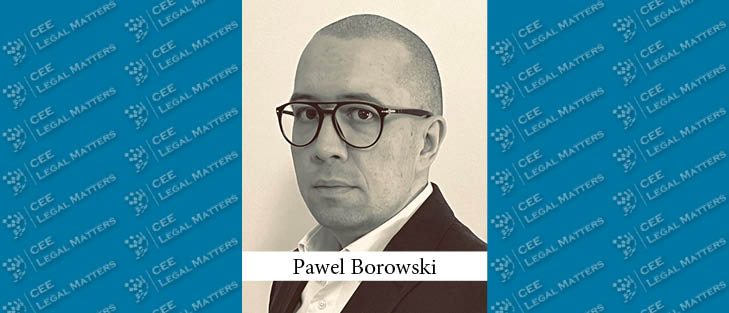Environmental, Social, and Governance are no longer mere buzzwords. ESG has become integral to corporate strategy and operations. Companies are now under increasing pressure from regulators, investors, and the public to adhere to ESG standards. The role of in-house counsel in ESG and the implementation of the Corporate Sustainability Due Diligence Directive (CSDDD) requires a balance of legal expertise, strategic thinking, and proactive risk management.
As ESG and CSDDD continue to grow in importance, in-house counsel will play an increasingly critical role in ensuring that companies comply with these regulations. By staying informed, collaborating across functions, and engaging with stakeholders, in-house counsel can help companies navigate the complexities of ESG and CSDDD, emerging as leaders in this rapidly evolving field.
What are the key responsibilities of in-house counsel under ESG and CSDDD?
Advise on Implementation
In-house counsel must be deeply involved in both the company’s ESG strategy and the specific implementation of CSDDD requirements. This involves advising on the legal and business risks associated with ESG and CSDDD, ensuring the company’s goals align with the directive’s requirements, and helping integrate these considerations into business operations. In-house counsel must work closely with the departments involved in implementation, such as compliance, human resources, and sustainability to ensure that both ESG and CSDDD initiatives are legally sound and effectively implemented.
Navigate the Regulatory Landscape
The regulatory environment surrounding ESG, particularly with the introduction of CSDDD, is rapidly evolving. In-house counsel must stay abreast of these developments, ensuring that the company is compliant with all relevant regulations. This includes understanding the specific requirements of CSDDD, such as the need for comprehensive due diligence across the entire value chain, and advising on potential legal risks associated with non-compliance, including litigation and reputational damage.
Review the Contracts
Collaborate closely with various functions to incorporate precise ESG and CSDDD-related clauses into contracts, ensuring that the company not only meets but exceeds regulatory requirements. It is the in-house counsel who can reinforce the company’s commitment to sustainability and human rights, drive accountability across the supply chain, and mitigate potential legal risks associated with non-compliance.
Ensure Accurate Reporting
Transparency is crucial for ESG. In-house counsel plays a critical role in ensuring that the company’s ESG reporting and disclosures, including those required by CSDDD, are accurate, transparent, and compliant with regulatory requirements. This involves reviewing ESG reports and CSDDD-related disclosures, ensuring all statements are substantiated by evidence. In-house counsel must be aware of the risks of greenwashing (where companies make misleading claims about their ESG performance) and take steps to mitigate these risks by ensuring all ESG and CSDDD communications are honest and accurate.
Managing ESG and CSDDD-Related Risks and Litigation
As ESG and CSDDD issues gain prominence, the risk of related litigation increases. This includes lawsuits related to environmental damage, human rights violations, and corporate governance failures. In-house counsel must proactively identify potential ESG and CSDDD risks and develop strategies to mitigate them. This may involve conducting regular audits, implementing robust compliance programs, and advising on best practices for managing these risks. This also goes hand in hand with contractual safeguards and their effectiveness.
In-house counsel are currently navigating a steep learning curve to manage the expanding scope of ESG-related responsibilities. So, what practical tips can help them effectively handle these new challenges?
1. Invest in understanding the principles of ESG and the specific requirements of CSDDD. This may involve attending ESG and CSDDD-focused training programs, participating in industry forums, and staying updated with the latest developments in ESG and CSDDD law.
2. Make sure you hire a consultant you can rely on. ESG and CSDDD involve a complex set of rules. Do not miss the full picture and onboard an expert who would be able to help you navigate and find the right track.
3. Collaborate across functions. ESG and CSDDD are multidisciplinary issues requiring collaboration across different functions. In-house counsel should work closely with other departments to ensure a coordinated approach and leverage the expertise.
4. Engage with stakeholders, including investors, regulators, and customers. This is essential for ensuring that the company’s ESG and CSDDD strategies meet their needs. In-house counsel might be also a good fit to facilitate stakeholder engagement and ensure the company’s initiatives align with stakeholder expectations.
5. Monitor and adapt. Regularly review the company’s ESG and CSDDD strategies and make necessary adjustments to ensure continued compliance and alignment with business objectives.
Summing up, ESG is about corporate strategy, risk management, and reputation. Companies are expected to go beyond compliance to proactively manage their environmental and social impacts while ensuring strong governance practices. This shift has placed in-house counsel at the forefront of ESG strategies, requiring not only legal expertise but also a deep understanding of the broader business implications of ESG.
By Pawel Borowski, Head of General Legal, Zentiva






















